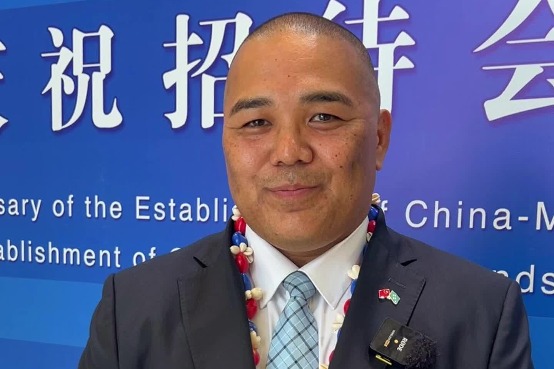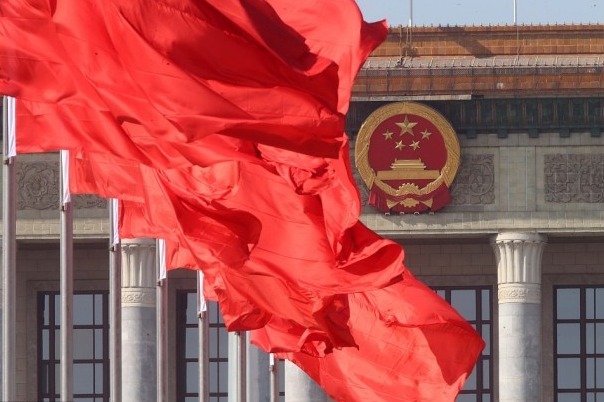World hungry for change
What China has done and what it needs to do must be part of the necessary transformation of the global food system


From July 26 to 28, 500 delegates and 150 leaders met in Rome, accompanied by 20,000 virtual delegates for the hybrid (offline and online) UN Food System Pre-Summit to set out what sustainable and equitable food systems could look like and how to make this transformation happen.
The first of its kind, the "people's summit" was brimming with energy and enthusiasm for action and game-changing solutions, bringing together previously disconnected stakeholders and setting out the key issues ahead of the full UN Food System Summit in New York this September.
After three days of plenaries, panel discussions and side events, several themes emerged: the need for nationally-led action, the need for innovative and sustainable financing and the need to overcome siloes.
All eyes are on urgent decisions and concrete actions to transform the food system.
How China, a country that feeds nearly 20 percent of the world's population using only 8 percent of the world's arable land and 5 percent of global fresh water, decides to produce and consume food will have global ripple effects.
What China has done-ensured food security for its population, diversified consumption, reduced hunger and malnutrition-and what China needs to do-tackle obesity and diet-related non-communicable diseases, environmental degradation, pollution and inequality-must be part of any global food system transformation.
What can be learned from China's food system transformation? China has a national and integrated approach to food security. It has created a sequential policy and investment environment that sees agricultural productivity and nutrition as a question of economic development.
The household contract responsibility system introduced in 1978 is often regarded as the start of China's food system transformation, triggering growth in agricultural output and productivity and increasing food supply. It was followed by market reforms in the 1980s and agricultural trade reforms in the 1990s which furthered productivity and economic development.
Recently China has integrated human and environmental health into its development agenda. Collectively, the 14th Five-Year Plan (2021-25) for National Economic and Social Development, and the Long-range Objectives Through the Year 2035, Healthy China 2030 Plan and Anti-Food Waste Law target awareness of public consumption, low-carbon rural development, healthy and balanced diets, food safety and environmental degradation related to livestock wastes, agricultural plastics and fertilizer use.
But policy is not enough on its own. China has also invested significantly in rural public infrastructure, agricultural R&D and innovation to improve food accessibility, off-farm employment and resilience building.
We cannot underestimate China's leadership in e-commerce which has helped smallholder farmers overcome market access barriers. Finance and investment are key to any successful food system transformation.
But despite this progress, China's food system is facing a set of emerging challenges. Slowing productivity growth, persistent micro-nutrient deficiencies, rapidly increasing obese and overweight populations, high health costs from diet-related non-communicable diseases, natural resource degradation, continued rural-urban and regional inequality, increased food imports and a recovery from the COVID-19 pandemic are challenging China's ability to provide access to safe, healthy and sustainable foods.
Climate change is also a very real threat, as the extreme weather events of this year illustrate. China has made important commitments to reach peak carbon before 2030 and be carbon neutral before 2060. Food and land use change will play a key role in realizing these goals, and they need to be considered in any future emissions policies-a shift toward more sustainable and healthy diets could reduce agricultural greenhouse gas emissions by 18 to 25 percent by 2030.
While China has made tremendous progress, the global food system needs an overhaul. There are four ways China can contribute. First, prioritize research and development of innovations that reduce the carbon footprint of agriculture, boost productivity, ensure soil health and enhance nutrition. Technology and innovation are powerful tools that can do more than increasing yields; improvements in crops and livestock could reduce agricultural greenhouse gas emissions by 7 to 16 and 9 to 23 percentage points respectively by 2060 and improve crop resilience.
Second, reform agricultural subsidies and strengthen global policy coordination. Inappropriate subsidies have been harmful to planetary and human health. New measures could increase financial support for nutritious, healthy and sustainable food supplies. Taxes can be imposed on unhealthy and unsustainable foods; and these funds can be used to support a sustainable transformation of the food system.
Third, overcome siloes and further integration. Sustainability, health, nutrition, equality and livelihoods cannot be separated. Institutional actors and government departments need to create coordination mechanisms to approach and act on these issues.
Last, influence behavior change. Consumers must be guided toward healthy and sustainable diets, including increasing their consumption of whole grains, vegetables, fruits and beans and reducing excessive consumption of refined grains, highly processed foods, sugar, salt and red meat.
What a population of 1.4 billion does for its food system can have positive global ripple effects. At the pre-summit, eight priority action agendas were announced: zero hunger, school meals, reducing food loss and waste, innovation for climate, agro-ecology and regenerative agriculture, blue foods, living incomes and resilience.
If China were to support even a handful of these, the national and international implications could create and accelerate positive tipping points for nature, health and livelihoods.
Beyond the UN Food System Summit, the Convention on Biodiversity (COP 15) and UN Climate Change Conference (COP 26), China must take a seat at the table and the international community must learn from and work with China, to support a food system transformation that is both sustainable and equitable.
Fan Shenggen is dean of the Academy of Global Food Economics and Policy at China Agricultural University, and serves as an ambassador of the Food and Land Use Coalition. Katie McCoshan is the International Engagement Coordinator at the Food and Land Use Coalition. The views do not necessarily reflect those of China Daily.


































